By Katarina Meister, ND onJanuary 24, 2023

Polycystic Ovarian Syndrome (PCOS) is a type of hormone imbalance characterized by high insulin, high testosterone, and high estrogen. These hormones are what contribute to its symptoms of cystic acne, irregular periods, male pattern hair growth, and weight loss resistance. You can read about PCOS… Read More
By Sarah Axtell, ND onJanuary 14, 2023
Quinoa Stuffing Gut health tip: Sometimes quinoa can be difficult to digest, resulting in bloating. Soak your quinoa in water and 1 TBSP apple cider vinegar for at least an hour (I often soak it overnight). Then rinse well before cooking it. This will help… Read More
By Sarah Axtell, ND onJanuary 14, 2023

Inflammation is at the root cause of heart disease. Elevated insulin, elevated blood sugar, inflammatory trans fats, and homocysteine (an inflammatory protein in the blood) irritate and inflame the lining of our blood vessels, or the endothelium. This initiates the process of coronary artery disease. Recent… Read More
By Katarina Meister, ND onJanuary 9, 2023
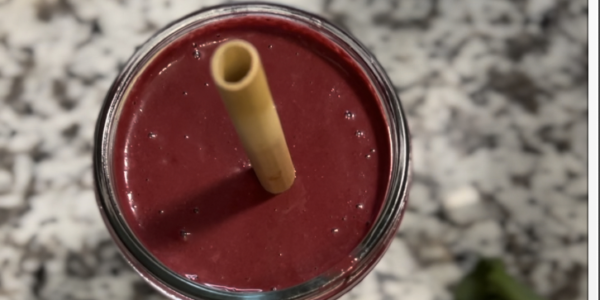
Ingredients 2 scoops collagen (or sub with a dairy-free protein powder) 2 tbsp Hemp Seeds 2 Beets, fresh and diced 3 Beet greens 1/2 cup Strawberries 1 Banana 2-3 Tbsp Cocoa Powder 8oz Almond milk Blend & Enjoy!… Read More
By Katarina Meister, ND onJanuary 9, 2023

Here is an easy recipe to add to your weekly routine to help improve your gut health and increase diversity in your microbiome. Unlike traditional chicken noodle soup, this recipe features anti-inflammatory spices turmeric, and ginger. Ginger also acts as a warming digestive… Read More
By Sarah Axtell, ND onJanuary 5, 2023
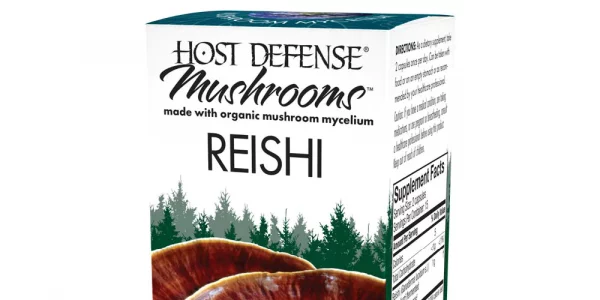
Reishi (Ganoderma lucidum) is a medicinal mushroom that is often referred to the “mushroom of immortality” as it has traditionally been used to promote longevity and support overall health and vitality. Here are some benefits Reishi: Immune support: This study shows… Read More
By Sarah Axtell, ND onJanuary 5, 2023
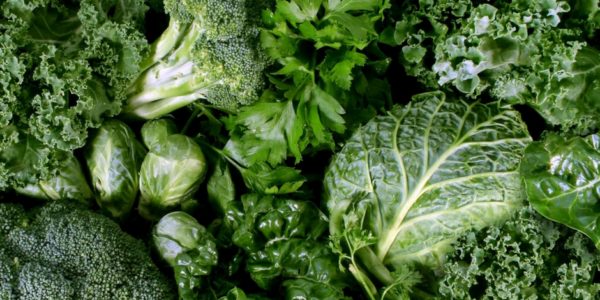
These are the foods I try not to go a day without: Walnuts– rich in omega 3 fatty acids, which support a healthy brain. Turmeric– has potent anti-inflammatory and antioxidant properties. I literally add it to everything!… Read More
By Sarah Axtell, ND onJanuary 5, 2023

1. Stick to whole foods with minimal ingredient lists. If you are buying food out of a package, immediately turn it around and read the ingredients. A food may only be 100 calories but it may contain a whole host of inflammatory ingredients, such… Read More
By Katarina Meister, ND onJanuary 3, 2023

January is an especially good time to cleanse to help offset the seasonal overindulgences and reset for the new year. To get started, here are three ways to start supporting detoxification organs at home: 1: Increase liver-supportive foods. The primary organ of detoxification is the… Read More
By Joanne Aponte, ND onJanuary 3, 2023

The underlying health of the child matters. A child with a robust immune system and a healthy gut microbiome is able to deal with the challenges brought on by many of the viruses and germs they are exposed to. If your child is getting sick… Read More
By Sarah Axtell, ND onDecember 23, 2022

Feelings of burnout are common this time of year- fewer daylight hours, holidays hustle and bustle, and work deadlines. Burnout can lead to a sense of exhaustion, stress, and brain fog. One of the most effective ways to address burnout is to support a healthy… Read More
By Sarah Axtell, ND onDecember 22, 2022

Trying a period of sobriety can be incredibly empowering. Avoidance of alcohol for 30 days (ie. “Dry January”) can give you a sense of achievement and not to mention the physical health benefits- improved sleep, weight loss, better blood sugar control, decreased blood pressure, and… Read More
By Sarah Axtell, ND onDecember 22, 2022

There’s no doubt that we live in a toxic environment. Chemicals are found in house-hold cleaners, pesticides and fungicides, tap water, car exhaust fumes, pharmaceuticals, beauty products, and cigarette smoke. This places an incredible burden on our bodies, especially the liver, our main organ of… Read More
By Katarina Meister, ND onDecember 21, 2022

Estrogen dominance is the most common hormone imbalance in perimenopausal women that I see in my practice. Different factors that can influence your hormones include stress, nutrition, sleep, activity level, body weight, pharmaceuticals, and exposure to… Read More
By Katarina Meister, ND onDecember 21, 2022

Think about how many different cosmetic or personal care products you use in one day… it probably is more than 10. Think about all the different chemicals in each of those that you are exposing yourself on the daily. Most of these chemicals are endocrine… Read More
By Sarah Axtell, ND onDecember 20, 2022
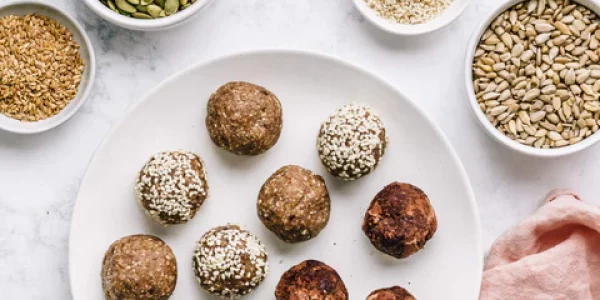
I am a big fan of seed (and oil) cycling for women to balance hormones using “food as medicine.” Here are some previous posts if you have not yet heard of seed cycling: Dr. Axtell explains seed cycling… Read More
By Katarina Meister, ND onDecember 20, 2022
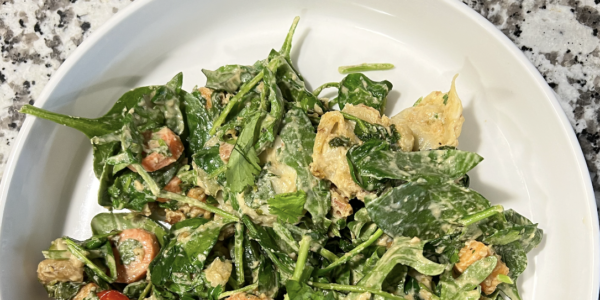
Quick and easy meals shouldn’t come at the expense of your health. Most of us know that processed and fast foods are riddled of nutrients and can lead to poor health, one example is a magnesium deficiency. With that said, if that… Read More
By Sarah Axtell, ND onDecember 15, 2022

Serves 2 This Brain Bowl contains the following brain-healthy super-foods: Forbidden rice: Forbidden rice is a nutritional power house. When cooked, it turns a deep purple color, revealing its anthocyanin content. Anthocyanins are a type of flavonoids, or plant pigments, that have been found to… Read More
By Sarah Axtell, ND onDecember 14, 2022

This Brazil nut “parmesan” makes for a delicious crispy crust for fish, chicken, or tofu. The brazil nuts are an excellent source of selenium, which is “food for your thyroid.” The nutritional yeast has a savory, cheesy flavor and is a good source of energizing-B12. Read More
By Sarah Axtell, ND onDecember 14, 2022
Maca is a plant native to the Andes, revered for its many nutritional and medicinal properties. Maca is a true superfood, for it is an excellent source of vitamins, minerals, plant sterols, protein, and essential fatty acids. Maca provides support for hot flashes, vaginal dryness,… Read More
By Sarah Axtell, ND onDecember 14, 2022
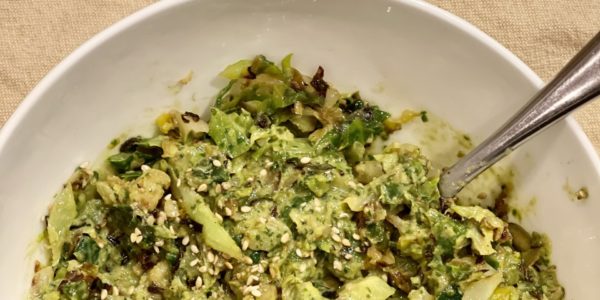
Cruciferous vegetables, such as broccoli, cauliflower, cabbage, and brussels sprouts, shift the metabolism of estrogen, reducing the cancer-promoting potency of estrogen. Cruciferous vegetables contain Indole-3-carbinol which turns into Diindolylmethane (DIM). DIM is an enzyme that helps to clear excess estrogen out of circulation properly… Read More
By Katarina Meister, ND onDecember 13, 2022

Magnesium is the top mineral deficiency that is running rampant in highly industrialized nations due to the increased availability of processed and refined foods. Simply put, if we don’t get enough magnesium in our nutrition, we are… Read More
By Katarina Meister, ND onDecember 12, 2022

Gut Reset Workshop by Dr. Katarina Meister video recording and booklet with recipes and health handouts is available now. From your nervous and immune systems to your mental health and digestive function, a healthy gut plays a pivotal role in your overall well-being. Read More
By Sarah Axtell, ND onDecember 9, 2022

The external use of castor oil supports the body’s detoxification and elimination functions, enhances liver metabolism, balances the immune system, and improves lymphatic circulation. The castor oil pack costs next to nothing, only asking a bit of your time and your openness to its detoxification… Read More
By Katarina Meister, ND onDecember 9, 2022
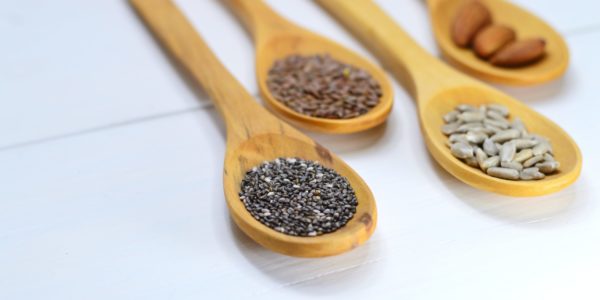
“Magnesium deficiency is rampant and one of the leading causes of chronic diseases including cardiovascular disease and early mortality around the globe, and should be considered a public health crisis.”[i] Magnesium is essential for your mitochondria to function… Read More
By Joanne Aponte, ND onDecember 8, 2022

So often women are told it’s “Normal” to have period problems. Just live with it and take birth control. Frequent periods, skipping periods, heavy bleeding, terrible PMS before your period or pain with your period that keeps you home in bed – these things are… Read More
By Joanne Aponte, ND onDecember 8, 2022
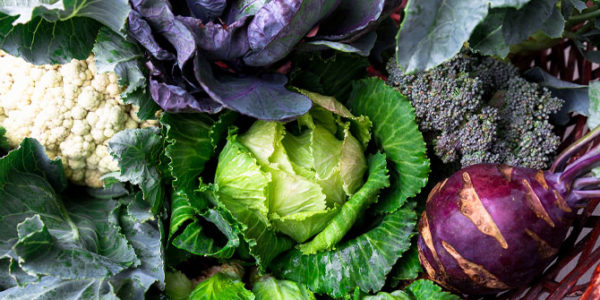
Several of women’s health issues are driven by high levels of estrogen in the body. Conditions of high estrogen include fibrocystic breasts, ovarian cysts, premenstrual syndrome (PMS), irregular menstrual cycles and breast cancer. To have a healthy balance of estrogen in the body we need… Read More
By Mackenzie Prentice, DNP, APNP onDecember 7, 2022

Integrative Primary Care describes an approach to prevention, wellness and disease management that emphasizes getting a patient to their optimal state of being. This means integrating different forms of treatment that both the patient and provider decides is best. During my initial visit with patients I often… Read More
By Mackenzie Prentice, DNP, APNP onDecember 6, 2022

Do you experience brain fog, lack of focus, and irritability? Feelings of stress and overwhelm are common in today’s fast-paced world and occur because of overstimulation of several physiological systems in the body. These feelings are real and present as physical manifestations of increased heart… Read More
By Joanne Aponte, ND onDecember 6, 2022
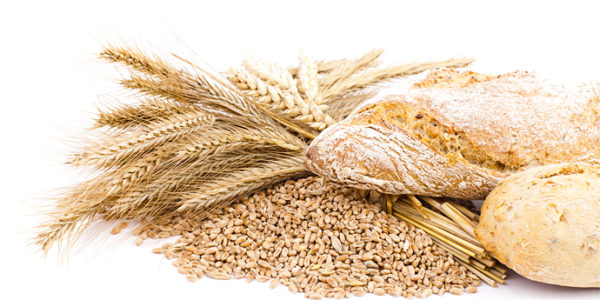
Even if you do not have Celiac disease you could still be gluten sensitive and you could still feel much better on a gluten free diet. What is celiac disease? Celiac disease is an autoimmune condition that occurs in genetically predisposed individuals in which the… Read More
By Katarina Meister, ND onNovember 30, 2022

The holiday season can come with many cherished memories surrounding food, notably sweets! Food is indeed a way for us to connect with loved ones. Food can also be the source of our healing but also what ails us. Obesity, hypertension, cardiovascular disease, and diabetes… Read More
By Sarah Axtell, ND onNovember 26, 2022
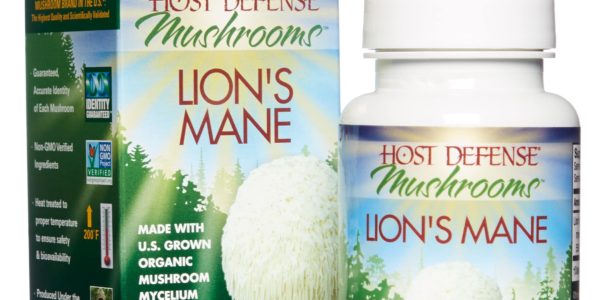
This one is for your brain! Studies show Lion’s mane, a type of mushroom, significantly improves scores on cognitive function scales. It also boosts brain-derived neurotrophic factor (BDNF), which is like “miracle grow for the brain.” In addition, lion’s mane has been shown to be… Read More
By Sarah Axtell, ND onNovember 17, 2022

Do you ever wonder why some people always tend to get sick but others who are exposed to the same virus or bacteria can successfully ward off illness? Exposure to a microbe isn’t always a guaranteed illness. Why? It boils down to the health of… Read More
By Katarina Meister, ND onOctober 25, 2022
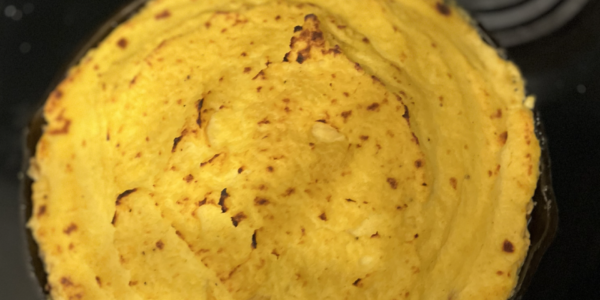
Enjoying your fall favorites doesn’t have to come at the expense of dysregulated blood sugar! Try one of my favorites- Rutabaga Shepherd’s Pie. You might be wondering, “Why Rutabaga?” Compared to potatoes, rutabagas are lower in total carbohydrates and higher in fiber. This means it… Read More
By Joanne Aponte, ND onOctober 23, 2022

Are you struggling to get through your day? Perhaps you need to nap, are having trouble focusing, and are unable to keep up with you daily responsibilities (family, work etc). You’ve probably been told by your medical doctor that your bloodwork is “normal” and that… Read More
By lakesidend onOctober 18, 2022

Healthy doesn’t have to be hard and can taste good too. Love stuffing? You’ve got it. Pumpkin Pie your thing? We’ve got a healthy version. No sugar, no garbage, all good-for-you ingredients in our recipes. Learn techniques for eating well and feeling well during this season of… Read More
By Katarina Meister, ND onOctober 12, 2022

The liver is the 2nd largest organ in the body! It performs over 500 functions and is one of our main organs of detoxification. The liver is responsible for detoxing drugs, alcohol, fatty acids, steroid hormones, ammonia, environmental toxins and allergens. Toxins are ubiquitous- from… Read More
By Sarah Axtell, ND onOctober 10, 2022

Magnesium is the top nutrient deficiency among Americans. It is a natural muscle relaxant. It relaxes our skeletal muscles, providing relief from headaches, muscle pain, cramps and tremors. Magnesium also relaxes our muscles lining our intestines and can draw water into the intestines, providing for… Read More
By Sarah Axtell, ND onOctober 9, 2022

Though we all want a strong immune system, boosting your immune system can be problematic. If you are in a state of chronic inflammation, boosting your immune system could exacerbate that inflammatory state. With autoimmune diseases, boosting your immune system can trigger a flare. In… Read More
By Joanne Aponte, ND onSeptember 30, 2022

Are you struggling with a bloated belly? Perhaps your belly is distended, you can’t fit into your pants, or maybe you look pregnant towards the end of the day. This bloating can get so bad that your abdomen is hard. You might be in so… Read More
By Joanne Aponte, ND onSeptember 29, 2022
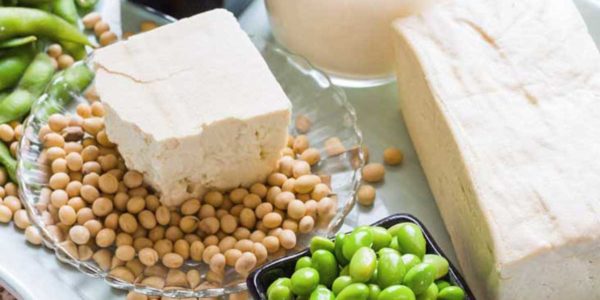
To cut to the chase, overall soy is good with many health benefits. It is a great addition to a healthy diet. But not all kinds of soy are good, it depends on the source of soy and how you eat it. Good forms of… Read More
By Katarina Meister, ND onSeptember 28, 2022

CBD (cannabidiol) is a phyto-cannabinoid, a plant cannabinoid that supports our internal endocannabinoid system (ECS). I frequently get asked, “Are hemp and marijuana the same?” The answer is NO, but they are derived from the same plant Cannabis sativa. To be considered hemp, the amount… Read More
By Mackenzie Prentice, DNP, APNP onSeptember 22, 2022

The thyroid gland plays an important role in regulating our body’s metabolic function. Thyroid hormones help the body use energy appropriately, which can regulate body temperature and manage weight. Thyroid hormones also provide energy for proper functioning of the brain, heart, muscles, and other organs. Read More
By Sarah Axtell, ND onSeptember 20, 2022
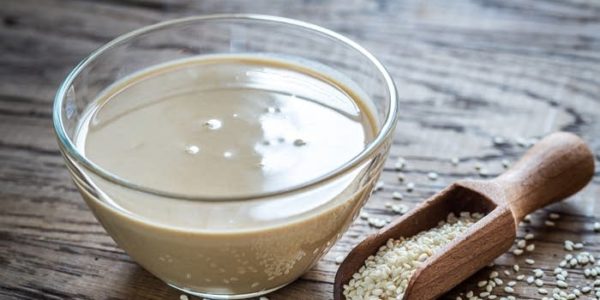
Tahini (or sesame seed paste) is one of the most nutrient dense foods. Here are 5 reasons to include tahini as part of your diet: Sesame seeds/tahini are a good source of protein– 20% protein by weight.Tahini also helps to stabilize blood sugar thanks to… Read More
By Katarina Meister, ND onSeptember 18, 2022

One of our most commonly recommended immune supportive supplements at Lakeside is EHB. EHB stands for “Echinacea, Hydrastis, and Berberine.” This supplement contains antiviral and antibacterial herbs along with immune supportive micronutrients. It is indicated for colds and flu. EHB also helps to reduce a fever… Read More
By Mackenzie Prentice, DNP, APNP onSeptember 17, 2022

I commonly see patients on medications for blood pressure or other cardiovascular conditions. These medications may be necessary for at least the short-term and sometimes long-term. Whichever the case, it is always important to optimize the body by reducing risks to the potential side effects. Read More
By Joanne Aponte, ND onSeptember 16, 2022

You can add this crispy baked tofu for a protein source in all sorts of meals or add to salads. It goes great with Asian and Thai inspired meals. Ingredients:Firm or super firm tofu (buy organic)Olive oil cooking spray Preparation: Remove the tofu from… Read More
By Mackenzie Prentice, DNP, APNP onSeptember 15, 2022

Optimal Health. This is my goal for you as a provider. There are many factors that contribute to and move the needle toward optimal health. As a Functional Medicine Nurse Practitioner, I recommend annual bloodwork to most of my patients. Annual blood work is one… Read More
By Katarina Meister, ND onSeptember 13, 2022

The gut microbiota maintains various functions vital to living a healthy life. A person’s microbiota is unique and specific to their lifestyle, environment, and nutrition choices.[i] The colonization of a newborn’s gastrointestinal tract is complete around the first week of life, but the… Read More
By Mackenzie Prentice, DNP, APNP onSeptember 12, 2022

Cholesterol is a lipid, which is another name for fat. Cholesterol, or fat, is an essential nutrient. Our liver can make cholesterol and we can also get it from certain food sources. Cholesterol is important for the following reasons: Every cell in the body needs… Read More















































